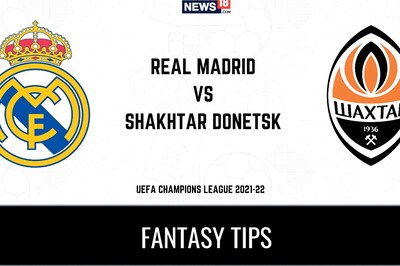
views
Nokia, once the world's top mobile phone maker, announced its return to the fiercely competitive handsets and tablets market years after being crushed there by Samsung and Apple.
Nokia, which is now a leading telecom equipment maker, said it would licence its brand to a new Finnish company which will produce phones and tablets under the Nokia name.
The new company, HMD Global, "has been founded to provide a focused, independent home for a full range of Nokia-branded feature phones, smartphones and tablets," Nokia said in a statement.
As part of the process, HMD Global and its Taiwanese partner, FIH Mobile of FoxConn Technology Group, will take over Microsoft's feature phone business for $350 million, Microsoft said separately. The US company had bought the business from Nokia in 2014.
Nokia was the world's leading mobile phone maker from 1998 until 2011 when it bet on Microsoft's Windows mobile platform which proved to be a flop.
Analysts say the company failed to grasp the growing importance of smartphone apps compared to hardware. The new product portfolio will be based on Google's Android.
The Finnish company sold its unprofitable handset unit in 2014 for some $7.2 billion to Microsoft, which dropped the Nokia name from its Lumia smartphone handsets.
Meanwhile Nokia has concentrated on developing its mobile network equipment business by acquiring its French-American rival Alcatel-Lucent.
With the new deal, Nokia eyes some new revenues from its still valuable consumer-brand, without having to bear the financial risks related to it.
"The areas where we believe the brand is strongest are Asia, South America and parts of Europe. Clearly China will be one of the target markets," Ramzi Haidamus, CEO of the Nokia Technologies unit, told Reuters.
HMD is a private venture in which Nokia will not hold equity. But the company is well-stacked with former Nokia executives.
"Nokia seems to have put together a very elegant deal in order to maximise the potential to drive some revenue from the handset business, with no risk in terms of hardware," said Ben Wood, an analyst at research firm CCS Insight.
"The brand is strong in the feature phone space, but does it stand for a cutting-edge future proof smartphone? That's unclear ... It's a brand that has lost its lustre," he added.
HMD, which will focus on branding and design in the partnership with Foxconn, said it would put 500 million euros ($564 million) into marketing over the next three years.
Nokia declined to provide revenue targets related to the licensing deal, nor a timetable for new devices, which will use Google's Android platform. The deal between Microsoft, Foxconn and HMD is expected to close in the second half of 2016.
Jukka Oksaharju, a strategist at brokerage Nordnet, said annual licensing revenues for Nokia would likely be in the tens of millions.
Microsoft has struggled with phones after the 2014 deal with Nokia, and last year it wrote off $7.5 billion from the business. Microsoft said on Wednesday it would continue to develop its Lumia smartphones.
Harsh competition
A senior analyst at Nordea Markets, Sami Sarkamies, told AFP that Nokia "could only win" with the deal.
"Certainly Nokia's brand still has some appeal in some markets, but competition is harsh. However, Nokia won't bear any of the risks," Sarkamies said, estimating the extra revenues would be counted in tens, not hundreds, of millions of euros.
The risks will fall on Chinese FoxConn, which will be in charge of manufacturing, sales and distribution of the new products through its subsidiary FIH.
The new company is to be led by Finn Arto Nummela who has previously held senior positions both at Nokia and Microsoft.
The conditional deal between Microsoft and Nokia's new brand-licensing partners is expected to close in the second half of 2016.
(With inputs from agencies)




















Comments
0 comment